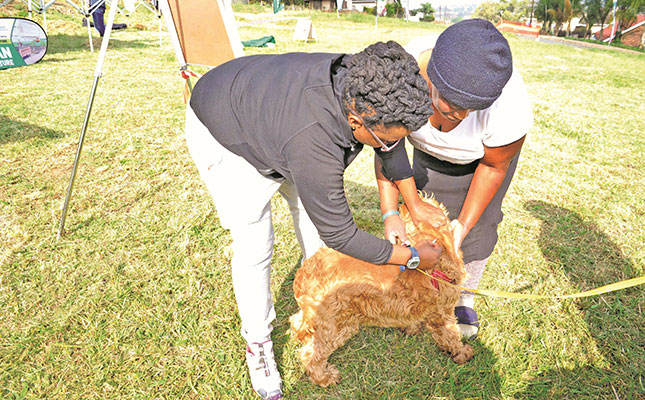
Photo: FW Archive
According to the alert issued by the Department of Agriculture, Land Reform and Rural Development, the coastal areas of KwaZulu-Natal and the Eastern Cape were particularly at high risk for rabies outbreaks.
Members of the public were therefore advised not to approach, touch or pick up stray dogs and cats in these areas for whatever reason.
READ Biosecurity protocols to combat livestock diseases
“When picking up stray animals and homing them, you could aid the spread of rabies to other areas and provinces, and put your and your family’s life at risk,” Reggie Ngcobo, media liaison officer for the department told Farmer’s Weekly.
The virus was spread via saliva when an animal scratched, bit or licked a person or other animals, with dogs and cats being particularly vulnerable.
Symptoms varied and could include “odd behaviour, for instance wild animals may act tame or docile, while tame animals may become aggressive or unresponsive. Other symptoms may include a lot of drooling or foaming [around the mouth]; problems swallowing; continuous vocalisation, for instance barking, whining or howling; as well as weakness and lethargy”, he said.
In animals and humans, the disease affected the brain, and once clinical symptoms became visible, there was no treatment available, and the disease was 100% fatal.
READ Deadly disease threatens rabbit, hare populations
“If you suspect you have been exposed to an animal that may have rabies, it is critically important to wash the wound well with soap under running water, and to immediately seek preventative treatment. Doing this can save your life,” Ngcobo said.
Dr Danie Odendaal, director of the Veterinary Network, said the risk of farm animals contracting rabies was much lower than for domestic animals.
He nevertheless advised farmers to check with their local veterinarians about the risk in their areas and which precautions to take.
He said the disease was self-limiting in cattle, as cattle did not have teeth with which the virus could be spread to other animals.
However, a person could still get infected by farm animals if, for example, a farmer was inspecting the mouths of livestock.
Dr Gininda Msiza, chief director of veterinary services at the Western Cape Department of Agriculture, confirmed that rabies rarely affected farm animals, with the last case reported in the Western Cape being that of a horse that contracted the disease about 40 years ago.
He confirmed that all the animals within a certain radius around a farm would be vaccinated against the disease to prevent it from spreading once an outbreak had been reported.
Since there was no cure, prevention was the best course of action: “Farmers should ensure that all the dogs and cats on their farms are vaccinated to protect themselves, their workers and families against the disease”.











